#the decent shit
Explore tagged Tumblr posts
Text
I think game studios should just release their character creators online. For the times when I don’t wanna play the whole game, just the lil dress up part
#yes this is about baldurs gate 3#no I don’t have a decent computer if any description or a PlayStation#I do wanna play the game but I mostly wanna make my dnd characters for hours#you could literally do it for everything tho#totk outfits and dyes#Skyrim could have it’s 17th release#outfits in shit like assassins creed games#dragon age#fromsoft games#the sims maybe??#the options are endless pls game devs#video games#nintendo#Xbox#Sony#PlayStation
61K notes
·
View notes
Text
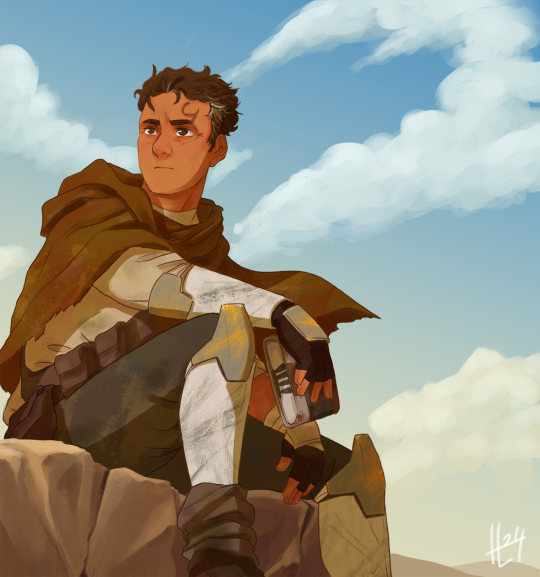
looking for someone on Tatooine
#commander cody#coday#cody day 2224#codywan#tatooine husbands#looking for obi-wan obviously DUH#ARE YOU GUYS READY FOR CODAY????#I've overdone myself and drawn THREE pieces for today like what????#I did not think I'd get them all done but somehow I did#I'll post them all during this day with little gaps in between#cody my beloved#I gotta say#I've never drawn as good looking rocks as I did here#the ones Cody's sitting on like#THEY AREN'T EVEN THAT GOOD but I suck at any type of background shit so I'm so happy they look decent hahaha#I also live for scavenger/ rebel/ hobo -outfit Cody#and also that he still keeps some parts of his armor#just to be able to kick ppl and droids if the need arises ofc#I love Cody so much I'm so ready for today#star wars#my arts
4K notes
·
View notes
Text
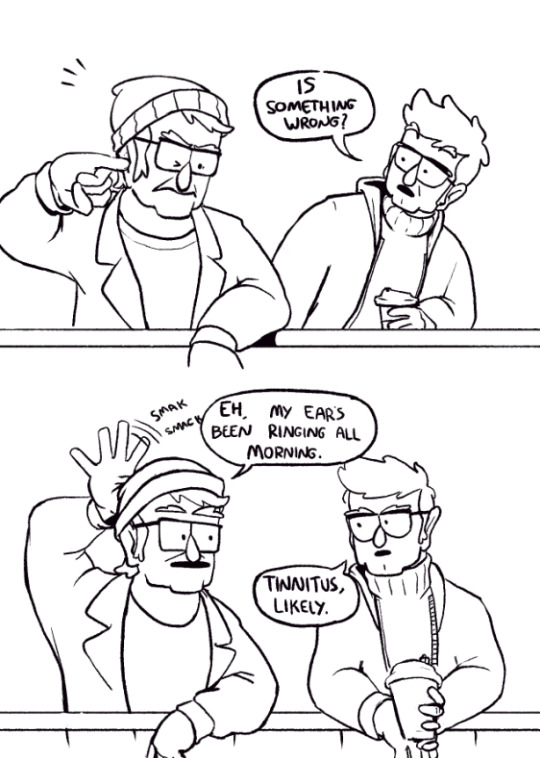
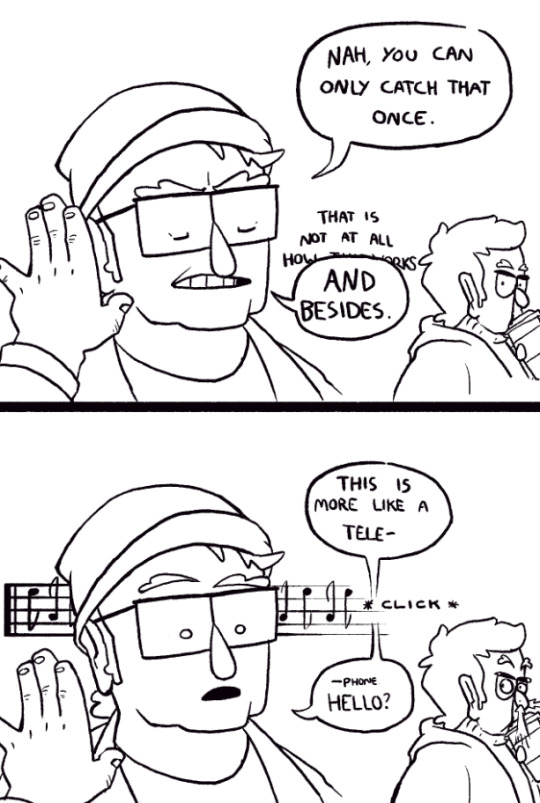


its just supervised phone calls like
in the wise words of stan himself: give me money
#gravity falls#art#stan pines#ford pines#im vaguely proud of how long this is and how fast it came out but. ugh the framing is so boring#book of bill#new drawing alert#artists on tumblr#i GOTTA work on pacing for these things. holy shit dude#but whatever the endurance test was good ig#the guys came out decent despite me not drawing them since 2017#editing to be less self deprecating lol also this idea barely makes sense. oh well
2K notes
·
View notes
Text
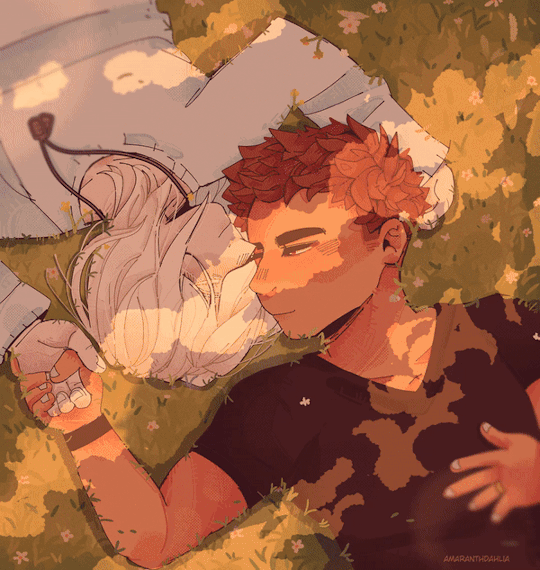
maybe in another life
alternative title: the fault in our quirks (corny ik)
heres the individual portraits!

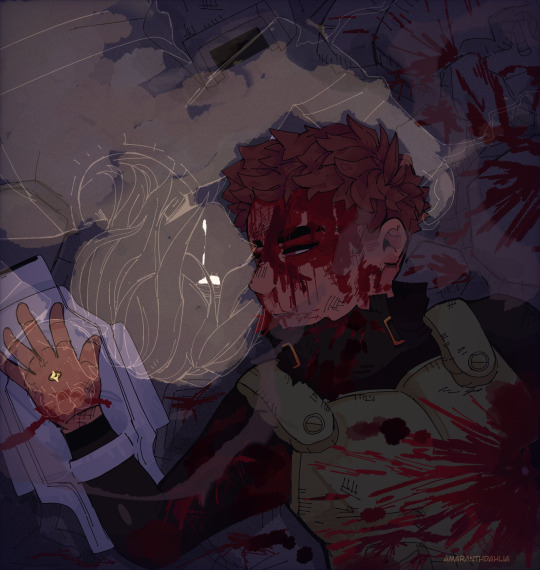
and heres one with yoichi upside
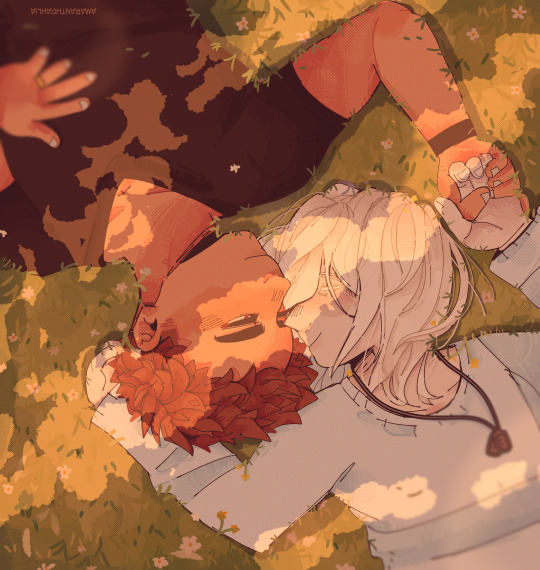
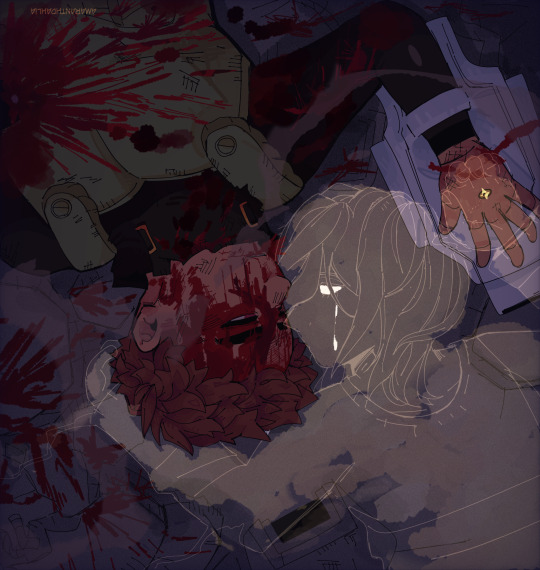
commissions
#possibly my biggest kdch piece ive ever made so far#kudoichi#ichinii#duo holders#my hero academia#boku no hero academia#mha#bnha#yoichi shigaraki#shigaraki yoichi#second one for all user#second ofa user#mha kudou#cw blood#first ofa user#this star crossed lovers shit gets serious#ive been wanting to draw smth with kudous death (and yoichis spirit staying with him until he passed).........#ive drawn it ALOT in my drafts since december but none of them came out good#glad this one came out decent#dahlia.art
668 notes
·
View notes
Text
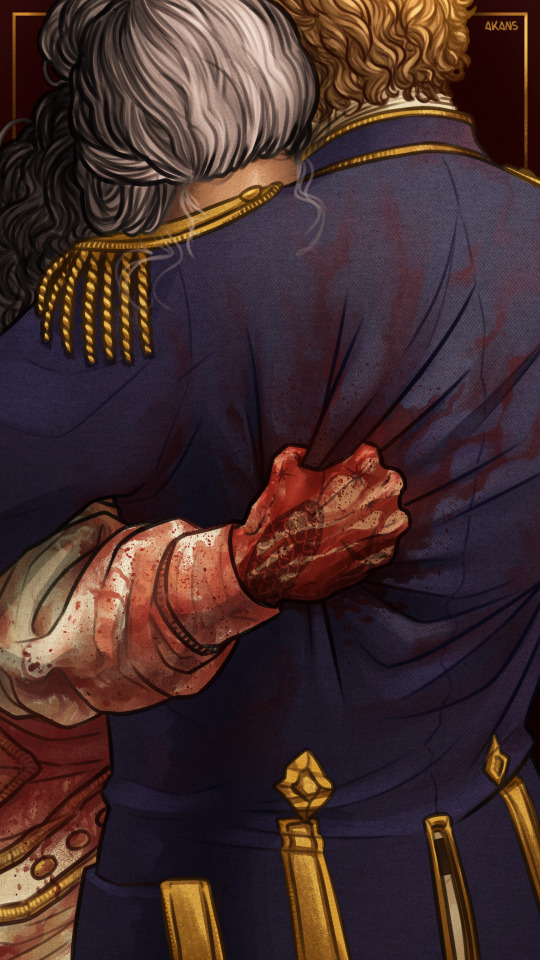
It's alright
30 second timelapse:
#ofmd#ofmd s2#ofmd fanart#our flag means death#“I am a brave boy and will NOT cry while getting reference screenshots of Ed” he said.#*barely manages to hit Win+Shift+S through the fucking tears*#I'm sorry but this is the only decent OFMD fanart I got in me for now#I'm shit at drawing people with faces/head and I still gotta learn and find a style but god knows the gay pirates are gonna help me practic#I still need to recover from this scene- this episode- this season- this show goddamnit#ngl at first I liked how I drew Ed's hair but the more I look at it now the less I like it >:C#did I forget to post this? no nope nuh uh I don't know what you're talking about#this absolutely blew up on twitter- lowkey hope tumblr dot com likes it too :>#ed teach#stede bonnet#gentlebeard#ofmd s2e8#tw blood#blood#akans art
1K notes
·
View notes
Text
brain filled with jegulus uni au where james walks into the wrong lecture, all tired and sleep deprived, with baby harry on his chest. cue regulus falling in love with the hot dilf that doesn't belong in his post modernism class and who he knows for a fact is sirius' best friend
first chapter is officially out :)
#jegulus au#jegulus fic#jegulus#marauders#marauder era#james potter#regulus black#now i imagine the black bros having a somewhat decent relationship with reg having left the family#and yeah sure he knows of james IN THEORY but sirius never really brings up harry bc hes convinced reg hates kids#turns out he does but harry???? oh he loves harry!!!!#and then something something happens and jegulus kiss :)#also lily would be sooooo fed up with james' shit. hed be asking her to let harry stay with him just so that he could impress reg#grrrrr i love kid fics
2K notes
·
View notes
Text
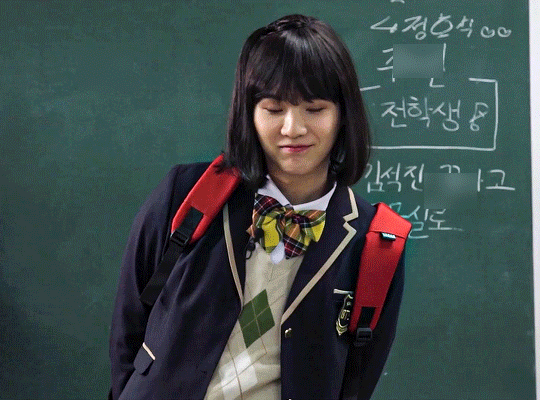
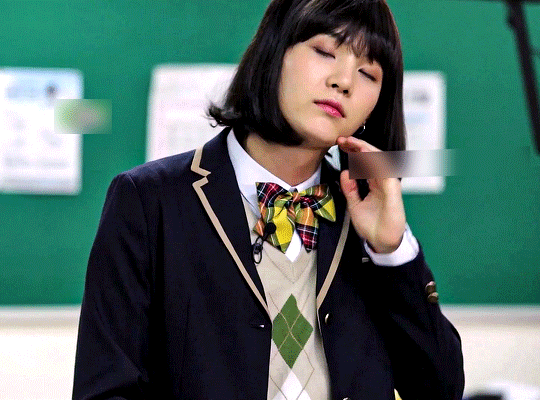


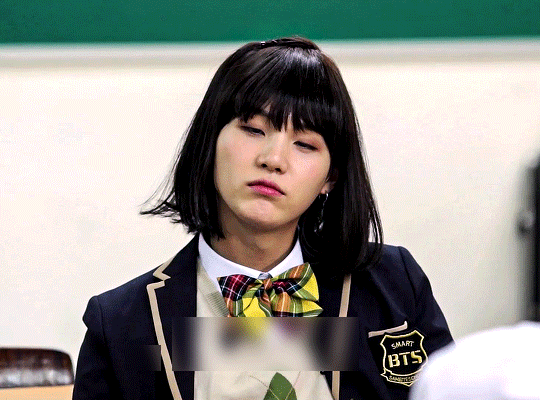
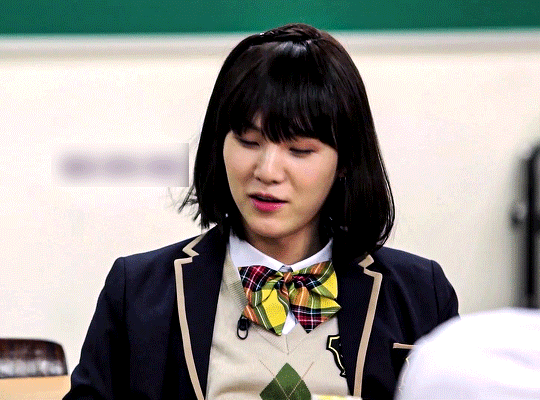
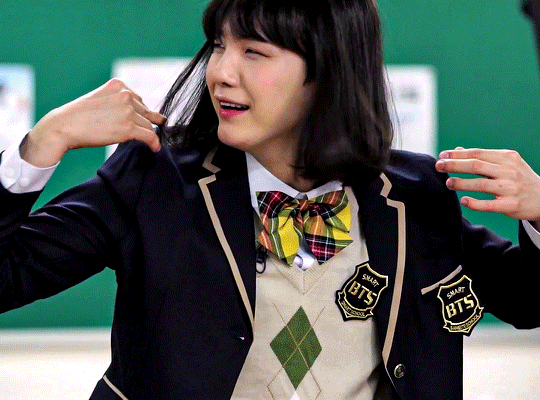

She's an icon, she's a legend and she is the moment - Miss Min Yoonji [random RUN BTS sets]
#bts#7jgif#bangtan sonyeondan#suga#min yoongi#yoongi#btsgif#runbtsbyjp#iconic shit#ok im still decent at blurring captions phew
960 notes
·
View notes
Text

What are you thinking about?
#youko u shit hes not in condition to think#i drew this on my way home its kinda ugly but also cute??? i could do better and do a decent vers but naaahhh way too lazy#digital art#yyh#yu yu hakusho#yuyu hakusho#kurama x hiei#hiei jaganshi#hiei#yyh hiei#youko kurama#yyh kurama#kurama#kurahi#ignore the splosh of pink i had to fight the brush
203 notes
·
View notes
Text

guys I don’t really like marvel but the silly murderer and his pathetic sweaty hairy old guy got me in a chokehold at the moment (more under the break)



#they’re so nasty and I can’t help myself#they’re all gross and shit#but actually like decent deep characters#and marvel is a shithole but this movie was actually really good#I’m gonna try to not be ashamed of what I post just because it’s different from my normal fandoms#I enjoyed this and I’m proud#deadpool#deadpool and wolverine#wolverine#poolverine#fan art
262 notes
·
View notes
Text
wei wuxian vs. pragmatism: what MDZS intends to say about righteousness
copy/pasting most of my rather bitchy reply into its own individual post because i think it deserves to stand on its own.
so i think we can all agree that MXTX intends for us to read MDZS and conclude that wei wuxian is ultimately a deeply heroic and righteous person. whether you as the reader agree with this assessment of wei wuxian's moral character is another question entirely, but at the very least it is fairly obvious to all of us that MXTX intends for us to read him as a good person.
so why does MXTX call wei wuxian a good person? what aspects of his character and which of his choices make him a good person? what moral framework and what definition of morality does MXTX employ in order to call wei wuxian a good person?
i posit that MXTX argues that wei wuxian is heroic precisely because he is not pragmatic - because he adheres to his moral ideals despite the consequences, and because he did not make moral sacrifices at critical junctures of his life. the first half of this post will argue that wei wuxian is not pragmatic. the second half of this post will argue that this is exactly why wei wuxian is heroic, and that the moral framework employed by MXTX is deeply idealistic instead.
so let's begin.
let's start by establishing two things.
first: what MXTX argues about morality through the narrative of MDZS and the reader's own beliefs about morality are two different things. me saying "MDZS argues that xyz is righteousness" and me saying "i think xyz is righteousness" are two different statements. the following analysis is concerned not with what i myself consider to be righteous, but rather what MXTX argues through MDZS is righteous.
second: wei wuxian is not pragmatic.
what does it mean to be pragmatic? unless we are speaking about the school of philosophy specifically (which i am not here), being pragmatic means being grounded in reality and focused on practical outcomes. it means being result-oriented and considering the consequences of your actions before you act; it means acting only after you have considered the potential consequences of all possible courses of action and have then decided which outcomes are acceptable. being pragmatic also means recognizing when achieving everything you want is impossible. and, in such situations, being pragmatic thus entails compromising to achieve a desired outcome, even if that means you don’t get everything they want. to put it in edgier terms, being pragmatic means being able to make moral sacrifices.
an idealistic person attempts the impossible. a pragmatic person recognizes when something truly is impossible.
wei wuxian is not pragmatic.
first, wei wuxian is not someone who carefully considers the consequences of his actions before he acts. in fact, he displays a startling lack of consideration for consequences. it repeatedly falls upon other characters to either try (and fail) to hold him back.
when wei wuxian punched jin zixuan for insulting first jiang yanli and then jiang cheng, did he consider that jiang fengmian and jin guangshan might then dissolve the betrothal, and that jiang yanli might have wanted to make a decision regarding that on her own? no. he just punched jin zixuan because he was mad that jin zixuan had insulted two people he loved.
when wen chao threatened mianmian, and lan wangji and jin zixuan stood up for mianmian, and then wei wuxian stood up for them by holding wen chao hostage in turn - did he consider that there might be consequences for humiliating and threatening the life of the son of a warmongering great sect leader who has already proven capable of attacking other sects? no. did he stop and think "alright, wen ruohan has already attacked the cloud recesses, which proves that he's willing to wage war against the other sects. threatening the son of a sect leader is an easy way to earn any sect leader's ire, and since i'm the first disciple of the jiang sect, this puts not just me but the entire jiang sect on wen ruohan's shitlist"? no. it would be one thing if wei wuxian weighed this possibility and then decided that rescuing an innocent girl and the people who defended her was more important was worth the risk - that would show that he considered the consequences and then made his choice. but the thought simply never entered his mind. he acted simply because he wanted to save mianmian, jin zixuan, and lan wangji from the wens; he did not think beyond that.
when wei wuxian busted the wen remnants out of the qiongqi pass labor camp, did he have a clear plan as to how he was going to weather the political fallout? did he have a plan more detailed than "live quietly in the burial mounds until everyone forgets about us"? no. when jiang cheng challenged him as to how he was going to survive the situation, he did not in fact offer anything more concrete than "we'll just wait for everyone else to forget about us." he blustered about being a once-in-a-generation genius who could accomplish the impossible, but he provided no actual plan as to how he was going to do it. this leads me to conclude that wei wuxian did not in fact have a long-term plan for handling the consequences when he went ham at the qiongqi pass camp - that, instead of weighing the consequences and then making his decision, he instead decided immediately that this was something he had to do, consequences be damned.
and then - on top of this - all of his following actions then point in the exact opposite direction of his stated plan of waiting for everyone to forget about them. because instead of doing anything to fade into the background, everything wei wuxian did instead just convinced the jianghu he was an intolerable threat.
and this was not a sustainable strategy.
one thing i really appreciate about MXTX is that she does not make the rest of the jianghu into one-dimensional villainous morons. it's quite easy for lazy writers who want a persecution plotline to have the rest of the story's society magically start hating on the protagonist for no good reason, to make every background character in the story's world a three-braincell moron. but MXTX is not that author. it speaks to MXTX's skill as an author that, from the perspective of the rest of the jianghu, fearing wei wuxian as a mortal threat was an entirely reasonable conclusion for them to come to.
first, the gentry's most recent direct interaction with wei wuxian during this time period is him threatening to kill all of them. when jin zixun doesn't give him the information he wants, wei wuxian straight up says: "if i want to kill everyone here, who can stop me? who dares stop me?" this is a threat! and - surprise - threatening to kill people naturally makes people think that you want to kill them!
next, wei wuxian refined wen ning's dead body into the first sentient fierce corpse in history, and also the strongest fierce corpse in living memory - and then took wen ning with him on night-hunts. that's where the reputation of "the yiling patriarch and his ghost general" comes from. this very naturally made the rest of society fear him even more, because now the guy who has just recently threatened to kill you has demonstrated even more of the power to easily do so! the unparalleled power to do so, which no one else possesses and it would be very hard for anyone else to counter! add in the fact that wei wuxian's activities were also attracting prospective disciples - people gathering outside the burial mounds because they wanted to learn demonic cultivation - and naturally the public is even more frightened, because now it looks like the guy who threatened to kill all of you is also gathering the political force to do so!
the public is incorrect about wei wuxian's intentions, of course. but what does wei wuxian do to correct these misconceptions? to rehabilitate his public image, because now his public image has the life of not just himself but also all the wen remnants under his protection riding on it? to prove to the public that he isn't an active threat to their lives - that he does not seek to murder them all in their beds - that it is safe for them to allow him to live, and that they can in fact survive if they don't kill him?
nothing.
it would be one thing if the story mentioned how wei wuxian tried to correct the malicious rumors about himself and failed. but that is not what happened. what happened is that wei wuxian sat on his corpse mountain and let everyone else say what they wanted to say. and when he left his corpse mountain, it was to bring his one-of-a-kind unparalleled sentient fierce corpse with him on night-hunts, which of course just fanned the flames of the rumors instead. he doesn't even tell the prospective pupils camped on his front door to fuck off - he just sneaks in through the back door.
this is not pragmatic behavior. though you can argue that wei wuxian's strategy here was to become so powerful and so scary that no one would dare try to fight him, anyone with a brain can tell you that this is not a sustainable solution in the long-term. first, if you want to use threats to keep someone from attacking you, you also need to promise stability - you need to give people the reassurance that if they don't start shit with you, then you'll leave them alone too. if you drive the "threat" factor too high, as wei wuxian did, you instead end up convincing people that if they do nothing you'll kill them anyways - that they have no choice but to kill you if they want to survive.
second, if you want to use threats to keep someone from attacking you, you also need to prepare for the inevitability that, if someone does end up getting hurt, everyone will blame you first and no one will want to hear your side of the story. after all, if someone gets hurt, then the first suspect everyone looks towards will be the guy who's been consistently saying "i'm strong enough to hurt you! i'm strong enough to hurt you! don't start shit with me because i'm strong enough to end you!" for the past few months. this is basic common sense. and yes, the society of MDZS is unfair - wei wuxian deserved a proper trial and investigation after the death of jin zixuan. but the fact that society is unfair is something a pragmatic person would have recognized and planned for.
wei wuxian did not recognize and plan for this reality. even after he accidentally kills jin zixuan, wei wuxian still insists that if only the jianghu investigates jin zixun's hundred holes curse, they'll see that wei wuxian didn't cast the hundred holes curse, they'll see that there was more scheming going on, etc etc. wen qing has to directly spell out for him that, at this point, society no longer cares about the truth of the matter. it seems that wei wuxian was actually oddly idealistic about the true nature of his society all the way until the very end.
all of this leads me to conclude that, when wei wuxian busted the wen remnants out of the qiongqi pass labor camp, he did so without considering the consequences of his actions. he assumed that he could improvise and weasel his way out of this situation, as he's always done in the past with his typical genius - only this time, he was wrong.
wei wuxian acts without considering the consequences of his actions. he does not make a decision only after carefully deliberating over all of the potential outcomes - not at all. instead, he acts in the moment - not out of any rational consideration of potential outcomes, but rather because it is simply something he must do. this by definition makes him a deeply unpragmatic person.
to put it into more familiar terms, for wei wuxian, the righteousness of an action comes not from its consequences, but are rather inherent to the action itself. even if he were doomed to fail, he could not give up on the wen remnants.
second, at critical junctures, wei wuxian is unable to make moral sacrifices. to be pragmatic is to know when you have to sacrifice: to know when, in order to achieve the most inalienable of your goals, you have to give up on some of your other goals. this is something wei wuxian is consistently unable to do.
of course, when it comes to his own wellbeing, wei wuxian is all too willing to sacrifice. he'll carve out any number of his internal organs to save those he loves. but this honestly speaks less to wei wuxian's moral framework and more to his lack of self-worth from a troubled upbringing.
because, when it comes to any moral cause, wei wuxian is entirely unable to sacrifice anything, even if being unable to sacrifice entails more negative consequences. wei wuxian could not sacrifice mianmian, jin zixuan, and lan wangji to wen chao and his goons, so he took action and took wen chao hostage himself. to sit back and do nothing as wen chao threatened the lives of those three was simply unthinkable for him - even if it meant taking a course of action that put yunmeng jiang in danger.
wei wuxian's relationship with jiang cheng deteriorated because jiang cheng did not know about the golden core transfer: because jiang cheng did not know that wei wuxian could no longer cultivate, from jiang cheng's point of view, it looked like wei wuxian was just refusing to help out and fulfill his promises for kicks. wei wuxian could have made things a lot easier for himself and also any wen remnants he chose to rescue had he simply told jiang cheng the truth - but he knew that finding out the truth of the golden core transfer would make jiang cheng miserable, and [jiang cheng's happiness] was not something he was willing to sacrifice.
wei wuxian's single most prominent moral decision is his refusal to allow the wen remnants to be sacrificed. anyone with a shred of political sense had to know that rescuing the wen remnants and then protecting them would be near impossible - that it entails making an enemy of the jin, and due to the jins' power, the entire jianghu. wei wuxian himself knew this; he is no moron. wei wuxian also had no long-term plan, no allies, and significantly less power than the rest of the world believed. yet, despite this all, he acted anyways, because he could not let the wen remnants be sacrificed.
the wen remnants wei wuxian rescued from the qiongqi pass labor camp included both regular civilians and cultivators. perhaps wei wuxian could have negotiated a proper release for the non-cultivating civilians, such as granny wen and a-yuan, had he chosen to give up on the cultivators. but - the question of whether this would have worked or not aside - this was not a sacrifice wei wuxian would be willing to make.
nor could wei wuxian sacrifice the safety of yunmeng jiang. i am firmly of the belief that, had yunmeng jiang formally stood by wei wuxian's side after wei wuxian attacked the jin-run labor camp, lanling jin would have eventually declared war on yunmeng jiang, and yunmeng jiang's would inevitably be destroyed. both wei wuxian and jiang cheng understood this as well - which is why wei wuxian told jiang cheng to let him go.
(you can argue - successfully - that wei wuxian did in fact sacrifice [his obligations to yunmeng jiang and his promise to jiang cheng] by leaving yunmeng jiang to protect the wen remnants. this is true. but i think that - from wei wuxian's point of view - this was not much of a sacrifice, because due to wei wuxian lacking a golden core, he already viewed himself as mostly useless to yunmeng jiang. so him leaving - in his view - is not really that much of a loss for yunmeng jiang.)
wei wuxian promised wen qing that he would return wen ning's consciousness to his corpse. when wei wuxian made this promise, he had no idea if he could actually pull it off or not. but then he did - and, in the process, created the most dangerous weapon the jianghu had seen in living memory. wen ning specifically, or moreso wei wuxian's inability to control him, leads to so much of wei wuxian's eventual downfall: wei wuxian loses control of wen ning and accidentally kills jin zixuan; when wen ning goes to turn himself in at jinlintai, he ends up going berserk again and killing another 10-20 jin and lan cultivators, which leads to the nightless city pledge conference. frankly, wei wuxian could have avoided a lot of trouble - or at the very least, a lot of the public's fear - had he not raised wen ning from the dead. it's not like he'd be completely defenseless without wen ning, either. but wei wuxian promised wen qing he would resurrect wen ning - and he could not sacrifice his promise to wen qing because of what wen qing had already done for him.
a pragmatic person is able to make sacrifices, including moral ones. at the very least, a pragmatic person recognizes when sacrifice is inevitable, when all paths lead to something being lost. a pragmatic person, put in the trolley problem, would recognize that there were only two options and that both options involve sacrifice: either he must kill one person, or he must allow five people to die. there is no path forwards in which all six people live.
wei wuxian is unable to make moral sacrifices. he clings on to all of these moral causes, all of these promises and obligations, and it is precisely because he attempts to hold onto all of them that he ends up losing everything. to reuse the previous example, wei wuxian in the trolley problem tried to save all six people because he could not accept any of the sacrifices made inevitable by the trolley problem.
to put this all together - wei wuxian is not a pragmatic person. he makes decisions with his gut, not his head - he does not consider the consequences of his actions before he acts. nor is wei wuxian able to make sacrifices - even necessary ones in order to avoid greater tragedies.
but. none of this means that wei wuxian is not a deeply heroic person. rather, to do what you believe to be righteous and attempt to live up to your ideals despite the consequences is exactly what MXTX lauds as moral. and to be unable to make a moral sacrifice when everyone else in your society easily does so is in fact deeply heroic.
it is precisely because wei wuxian is not pragmatic that MXTX declares him a hero.
some people, including myself, favor a moral framework that centers pragmatism and reason as virtues. to us, the ideal moral character is someone who makes decisions based on reason and not emotion, who considers the potential consequences of every course of action before making a decision, and who then, based on these inferred future consequences, uses reason to deduce which of all of the possible outcomes is the most preferable.
but this does not in fact describe wei wuxian, nor is this how wei wuxian views ethics. and to be honest, i don't think this is how MXTX views ethics either.
in all three of her stories, MXTX repeatedly comes down harder on the characters who make pragmatic decisions, the characters who are willing to sacrifice. in fact, killing sunshot soldiers while acting as wen ruohan's spy, and then killing nie mingjue's men in order to ensure a chance at killing wen ruohan and saving nie mingjue, was the pragmatic thing for meng yao to do, because that was the least bloody path forwards towards a sunshot victory over qishan wen. in fact, cutting ties with wei wuxian after he attacked the jin-run qiongqi pass labor camp was the pragmatic thing for jiang cheng to do, because it was the only path forward that did not put yunmeng jiang, his first and foremost responsibility, in the line of fire. and yet (though the situation is less clear with jin guangyao), MDZS as a narrative criticizes both jin guangyao and jiang cheng for these decisions - because, to MDZS, righteousness does not lie in pragmatism.
(this is a statement i personally disagree with. but we are here to discuss what MDZS wants to say about pragmatism and righteousness, not what i want to say about pragmatism and righteousness.)
by contrast, the one single act for which deeply controversial jiang cheng is ultimately lauded for in the narrative is also his single least pragmatic, most emotional act. the one single act of jiang cheng's that MDZS does not criticize is when, after the fall of lotus pier, jiang cheng ran out from his hiding spot to distract the wen soldiers from seeing wei wuxian. from a filial, duty-based point of view, this was a deeply stupid and unpragmatic course of action: jiang cheng's first and foremost duty, as the sole surviving jiang and new sect leader jiang, was to survive, rebuild his sect, and avenge his parents. from a consequentialist point of view, this impulsive choice is also what led to the domino-fall of tragedy that followed, since jiang cheng then got captured and had his golden core melted, which then led to everything else. yet this stupid, unpragmatic, and impulsive decision is ultimately the one act MDZS considers to be jiang cheng's single most heroic.
the key as to what MDZS considers to be heroic, what it considers to be righteous, lies in the jiang family motto: 明知不可而为之, attempt the impossible. this line, taken from the analects of confucius, can be considered to be a deeply deontological ideal. i find this twitter thread (warning to my followers: does kind of dunk on JC) to be rather helpful in elucidating this line's meaning.
to attempt the impossible, to try what shouldn't be tried. "ask yourself not whether you can do it, but whether you should...consider not the result but rather the journey - have a clear conscience regardless of outcome." in other words, what matters is less whether you succeeded or failed, or what sort of outcome your actions brought about - what matters is that you tried. what matters is that, in the face of overwhelming odds, you tried to do what you think is right. and even if you end up failing - even if everyone you sought to protect ended up dying - the fact that you tried still has moral weight.
this is why it was righteous of wei wuxian to save the wen remnants - even though the ultimate consequences of that decision were overall negative, even though everyone wei wuxian tried to protect died. in fact, if wei wuxian had died immediately - if he had been shot down by jin archers at the qiongqi pass labor camp the moment he came within their range - if he had died before any wen in the labor camp realized someone wanted to save him - he would still be a righteous person. because, for MDZS, what makes an action righteous is not its consequences. for MDZS, what makes a person righteous is not what impact their actions have on the world, but rather that they have the sort of moral character that leads them to never give up on their ideals.
wei wuxian does not consider the consequences of his actions before he acts. or, should i say - wei wuxian makes decisions despite their consequences, because despite the consequences there are simply some moral causes he simply cannot give up on. wei wuxian did not save the wen remnants because it was pragmatic to do so. it was in fact deeply unpragmatic to do so. no - wei wuxian saved the wen remnants without a concrete long-term plan, without having thought through anything beforehand, with the knowledge of how weak he was in reality - because he could not give up on the wen remnants, consequences be damned.
to have some moral causes you simply cannot give up on, no matter the consequences - to MXTX, is deeply heroic. in this sense, MXTX's moral philosophy is not pragmatic at all, because to be pragmatic is to be concerned with practical consequences. instead, both wei wuxian and MXTX herself are deeply idealistic, because what matters to them are ideals and principles that extend beyond consequence.
as the linked twitter thread notes, this is why MXTX waits until the very end of the book to reveal that wen yuan, now lan sizhui, lived. this is why wangxian only meet mianmian and her family at the end of the book. this is why all of the cumulative positive impacts of wei wuxian's resurrection - jin ling forgiving wei wuxian, jin guangyao, and wen ning, for one - are kept to the end of the story: because MDZS needs to move away from the consequentialist argument. MDZS needs to establish that wei wuxian's righteousness is separate from the impact of his actions: that wei wuxian isn't righteous merely because his actions had a positive impact for which others can thank him, but rather because the actions he undertook were inherently righteous on their own. that even if none of these positive impacts existed - if wen yuan had also died, if mianmian hadn't made it - then wei wuxian's choices would still be moral.
this is also why MDZS ultimately comes down harder on characters like jiang cheng and jin guangyao, even though a more results-oriented moral framework would instead laud such characters. both jiang cheng and jin guangyao are deeply pragmatic characters: they put concrete results before abstract moral ideals, and they're willing to compromise on their ideals in order to achieve better results. i am a JC stan and a jiggy apologist because of these exact traits. but MDZS is a narrative that criticizes such pragmatism and instead holds up wei wuxian's idealism as a moral ideal - so, in order to advance its themes, the MDZS narrative ends up criticizing both jiang cheng and jin guangyao.
ultimately, this idealism - this criticism of pragmatism - lies at the heart of MDZS's themes. wei wuxian's righteousness is directly connected to the fact that he is not pragmatic. the fact that wei wuxian makes moral decisions despite the consequences, and that he is unable to sacrifice any moral cause - is all part of what makes him at once deeply unpragmatic and deeply heroic.
---
you see, the funny thing here is that i personally disagree with this theme. as i've said before, i'm a utilitarian. to me, the morality of an action does in fact arise from its consequences; to me, someone who compromises on their ideals to achieve better results is preferable to someone who adheres to all of their ideals and then loses everything. the character i consider to have had the greatest positive impact on this story's world is jin guangyao. the character i consider to have most dutifully fulfilled his obligations is jiang cheng.
therefore, i disagree with basically everything i wrote up there about "trying": i think that if you try to do the right thing, fail epically, and in the process of your failure get a bunch of other people killed as well, the fact that you failed this badly does in fact matter quite a bit. the bulk of my more haterish posts are born from this fundamental disagreement with what MDZS posits is righteousness.
however. as a reader i must recognize that [what i consider to be moral] and [what the author of this story considers to be moral] are two different things. my own moral philosophy may be heavily results-oriented, but MXTX's is much less so. therefore, regardless of what i think of wei wuxian, i conclude that MXTX ultimately intends for us to read wei wuxian as a heroic figure for the exact reasons i gave above - and that fact must then inform every analysis of MDZS i write.
#mdzs#wei wuxian#yanyan speaks#this analysis is also focused on wwx's first life bc wwx in his second life seems to give much fewer shits about moral causes tbh#second life for wei wuxian + all the good rewards at the end is basically a victory lap lol#anyways rip jiang cheng and jin guangyao for being pragmatists in a work that celebrates idealism#get dunked on ig#anyways wwx antis will read the above and go “well isn't this just a lot of words for 'the road to hell is paved with good intentions' ”#and like. yeah. that's correct#but mxtx is placing the majority of the moral weight on those good intentions imo#to mxtx - it is better to have heroic intentions and fail epically than it is to have unheroic intentions and achieve decent results.
225 notes
·
View notes
Text
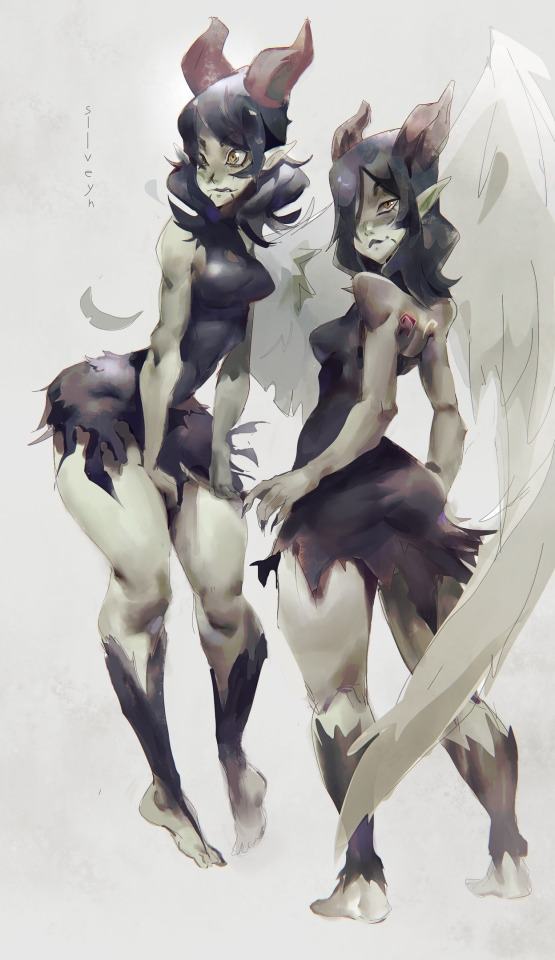
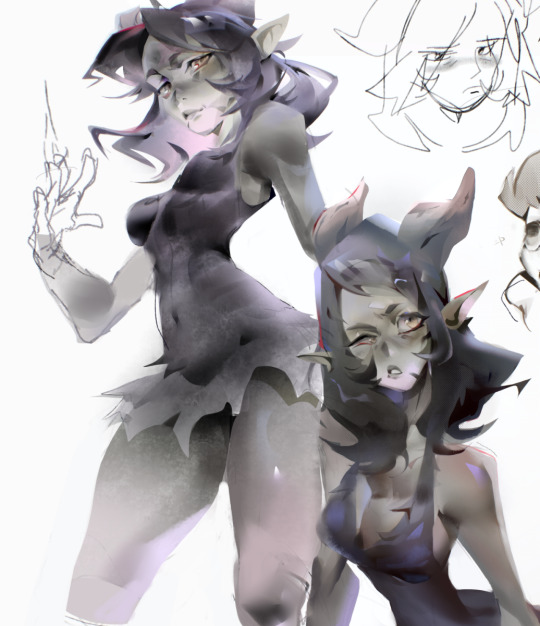
echo and some wip echo
#wakfu#dofus#echo#eniripsa#I thought that Oropo OVA gonna be decent#i was wrong#the worst thing that i even seen#pointless shit goddamn#waste of animation#yes im toxic so what
166 notes
·
View notes
Text


i dont wanna doom people with the taint without them knowing, but the game doesn't let me warn them ú_ù except with velanna. she deserves to make an informed decision
#i know its supposed to be a secret but fuck that let me tell the people#also i was so close to not recruit oghren cause im like#man you are a father u dont need this shit you dont even dream and now you are gonna start having nightmares and die earlier than you shoul#but that means Not Hanging Out With Oghren so. i had to doom him#choices were made#same with anders its like i know this is gonna fuck u up but also i know i cant stop da2 from happening dgijgdfioj#i also feel bad about recruiting nathaniel he could had a decent life...#velanna at least knows and wants it#sigrun is in the legion of the dead anyway and justice is already a warden technically so no problem with them#dragon age#dragon age awakening#daa#dao#brosca#the warden#priscilla brosca#anders#anders dragon age#oghren#oghren kondrat#velanna
268 notes
·
View notes
Text
I know some people like to clown on dazai for laughing a lil TOO hard at chuuya’s rich girl impression and that he was just tryna hit but i digress. Do you not realise the power of an inside joke? If me and my best friend didn’t see each other for 4 years only to meet up again and randomly she just references one of our inside jokes i would be guffawing like dazai. That rich girl impression was not funny at all but to dazai that shits hilarious and i get that. Me and my friends have inside jokes that would seem even more unfunnier to outsiders than that
#soukoku#skk#dazai osamu#osamu dazai#nakahara chuuya#chuuya nakahara#dazai bsd#chuuya bsd#bsd#bungo stray dogs#bungou stray dogs#chuuya bungou stray dogs#dazai bungou stray dogs#‘girls wanna dance ??’ is very funny to me and my bestie#‘decent sized cock’ is a classic between me and another friend#see like this shits funny to us even though its not THAT funny#soukoku having inside jokes is very dear to me
3K notes
·
View notes
Text
elia martell character of all time because she was playing the game of thrones AND WINNING — survived aerys, set up an alternate court on dragonstone, universally beloved even by most of robert’s anti-targ regime, was probably at least angling to get rid of aerys — but the literal song of ice and fire was being written around her and well. you can’t outrun your inevitable doom.
like. that’s elia’s tragedy, and what makes me so insane about her. she was in the wrong story. she was playing the game of court politics but ended up yoked to 300 years of targaryen collapse and dynastic rot instead. there’s nothing i love more than characters doing their best with the pieces they can see on the board, while the fact slowly dawns on them that the board is in the process of being swallowed by an eldritch monster.
#asoiaf#asoiaf meta#elia martell#this is why elia & rhaegar as a marriage is so compelling to me#they’re playing the complete opposite games#esp if you think they liked each other enough to make it work#which it seems like they did#but the dissonance must’ve been a gaping hole in their marriage#just generally — she comes from one of the few decently affectionate and healthy families#he comes from the horror show that is aerys’ nuclear family#and they have vastly different priorities#i wonder when the penny dropped for her#because i think she was certainly extremely sharp#how early she realised the depth of the shit she was in#and how late she realised it was inescapable
666 notes
·
View notes
Text
On Sampo's name (ALL of his names!)
I feel like everyone who's a fan knows the meaning of Sampo's full name by now- the sampo was a legendary item that could magically make endless supplies of gold, flour, and salt, all priceless items at the time! So it works perfectly for a scammer businessman like Sampo. ☆
"Koski" is the Finnish word for "water rapids" which might seem kinda random but actually makes sense for him, since Aha and the Masked Fools are also referred to with water terms:


This kind of analogy isn't specific to only Aha and the Masked Fools, but it does still tie them together. So water rapids fits perfectly! Sampo wants to stir the pot! He likes to shake things around and spice things up! He's taking that stagnant pool and turning it into water rapids! It would actually explain his ridiculous hair color, too; a dark blue wave tipped with white foam haha
EDIT: an amazing contribution from @ricochetlovebombs, who heard it from hoyolab user Rattaboy. If you interpret his first and last name together, instead of separately like I did, you would get something like "money river."
In other words, Sampo's name literally means CASH FLOW SKXJMDMDMD
What I really wanted to talk about is his drag alias name, though, Brughel Poisson, because to me that's where it gets really interesting.
So like in the English version, Sampo goes by Brughel Poisson when he's in disguise. Searching for just "Brughel" itself doesn't seem to get you much at first: a Flemish and Dutch Renaissance painter named Pieter Brueghel the Elder, who was famous for his landscapes and peasant scenery, especially Hunters in the Snow and The Blue Cloak.
He's referred to as "the Elder" because he had a son also named Pieter Brueghel (the Younger), and he began a long line of painters, all named Brueghel. Some of them did original work, and many of them created reproductions of the Elder's art to sell. The Elder was also famous as a printmaker. All of this is hilarious when you remember that Sampo is an infamous counterfeiter and has sold a relic called the Parallel Universe Printer JSKZJSMD

There is also something called Brueghel's Syndrome, named after one of Brueghel's paintings called De Gaper, which pictured a man yawning widely. It's a condition that causes the mouth to open and gape uncontrollably, twisting a person's countenance into a distorted mask of their usual face.
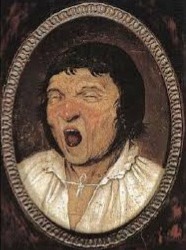
Tumblr doesn't have a way of censoring pics like twitter, so for the sake of the medically squeamish, I'm just showing De Gaper here. But if you look up Brueghel's Syndrome, you can find pictures of actual patients, some of whom really do make faces resembling Aha's comedy and tragedy masks!
In the Chinese and Japanese versions, his alias last name is a lot more silly- In those, "Sampo" is phonetically written as "san-bo" and "san-po." And in disguise, his last names are phonetically written as... "Bo-san" and "Po-san." The Chinese version uses different tones, but still. This smug asshole seriously just decided to write his own name backwards and called it a day NDMKXMDMD
In the English version, Poisson itself is kind of a reused Hoyo asset- it's also the name of Navia's fishing village in Genshin Impact. Which is a really silly name for a village, because it literally just means "fish" in French smzjxkdkdk but!
Again, more water imagery. And in English, if something is suspicious, we say that it's "fishy," which is perhaps the most fitting association yet for someone as shady as Sampo ☆
And for a good while I thought that was the only connection. But then. My beloved @hydrachea, who is an actual native French speaker, dropped this on me right after April Fool's Day:
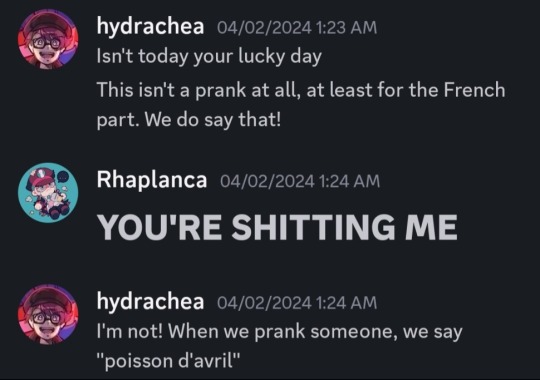
Poisson is literally the word you use to pull an April Fool's prank.
#honkai star rail#sampo koski#brughel poisson#hsr sampo#hsr sampo koski#hsr#I feel like I should note that all the info on the CN/JP versions are things I know secondhand#it was posted in a server where there ARE actual people who can read/speak Chinese and Japanese and no one corrected it-#-so I'm assuming it's at least decently legit. but if it's in any way incorrect I would love to hear from others!#I'm especially interested in CN since it's the original. and I've never heard anything about 'Brughel' in any other languages.#so anyone else with fun tidbits about Sampo's name in LITERALLY ANY LANGUAGE please feel free to reblog/tag/askbox me that shit#I love learning stuff like that it's so fun ♡#fun story in the old myth the sampo was lost in the sea. and in genshin impact the village Poisson was flooded by the sea.#not only that but Brueghel's last painting- which was unfinished due to his early death- was titled The Storm at Sea.#something something foreshadowing-
300 notes
·
View notes
Text
Out of the Batfam, Jason is one of the most atrocious liars. He can make it work when he absolutely has to, but usually I think whenever he lies he does with little motivation and with emphasis on irony to make it funny for himself. In comparison Dick is a phenomenal liar and can sell outrage so well before hanging up and reverting to normal that Jason sprays him with holy water and never believes a word out of his mouth.
#Tim's a good liar but people suspect him by default#Bruce can lie on the job but in his personal life either stays quiet or just says whatever is on his mind#Steph and Damian are decent liars when they want to sell it#Cass is a bad one#Duke is a great liar which helps him get away with half his shit and very few people believe his stories/rumours about his deeds#Alfred doesn't let them get a baseline on him so nobody knows#batman#dc comics#bruce wayne#batfamily#personal#dick grayson#jason todd#Babs is a terrifying liar too#Gordon also doesn't trust a word from her
358 notes
·
View notes